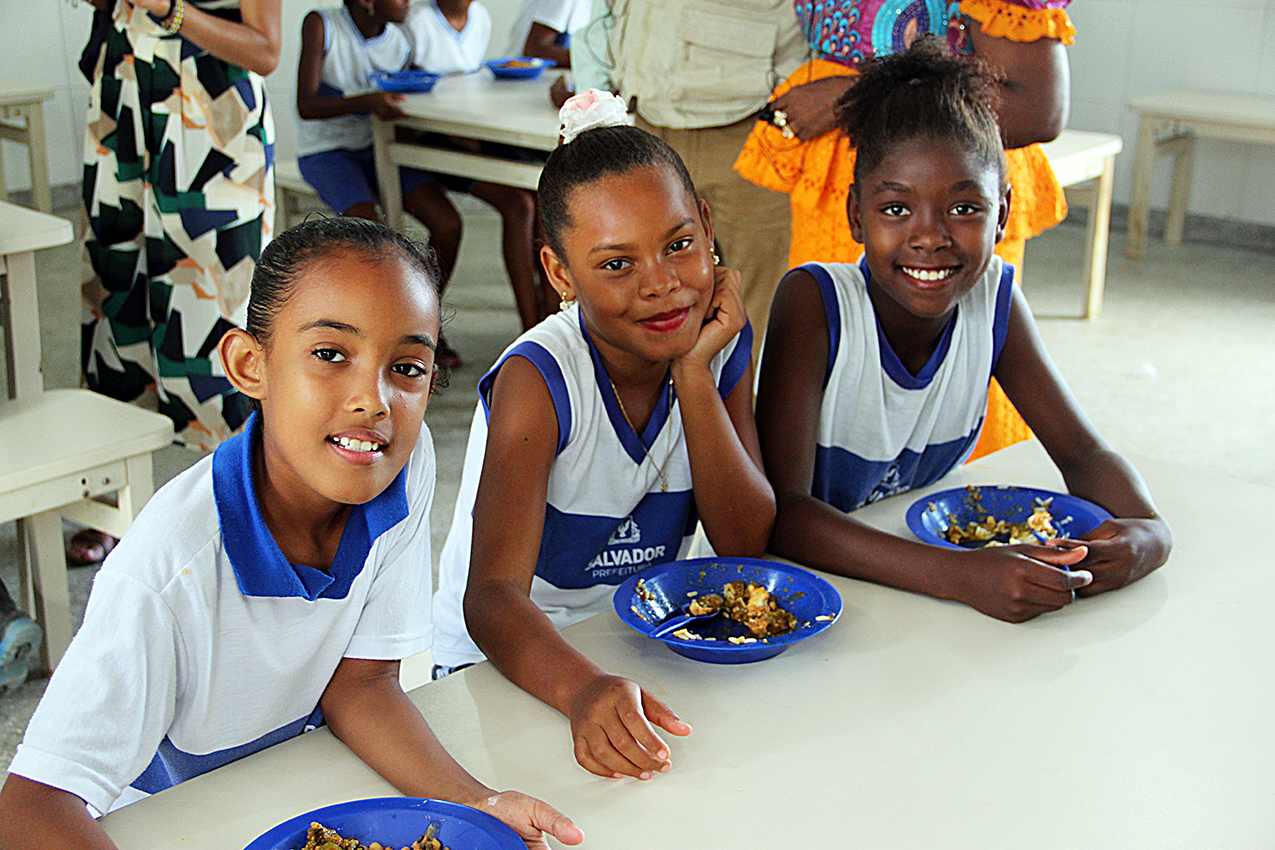
The year 2025 will be marked by the School Meals Coalition Global Ministerial Summit, on September 18 and 19, in Fortaleza (CE). Brazil is co-chair, together with Finland and France, of the School Meals Coalition, an initiative that seeks to ensure that, by 2030, all children in the world have access to nutritious food at school.
The School Meals Coalition published an interview this week with Minister Wellington Dias, from the Ministry of Development and Social Assistance, Family and Fight against Hunger (MDS), to talk about Brazil’s role in strategies to fight hunger and the importance of international cooperation for all countries to implement their school feeding programs.
Brazil is a protagonist in this global movement, with the launch of the Global Alliance against Hunger and Poverty in November 2024, during the G20 meeting, when representatives of the world’s largest economies came together in Rio de Janeiro. In addition, Brazil has a history of sharing experiences of the Brazilian National School Feeding Program (PNAE) with other countries through Trilateral South-South Cooperation.
In his interview, the Minister stressed the importance of school feeding programs as one of the policies in the Global Alliance’s Policy Basket.
“In many schools around the world, there are millions of children who depend on the only meal they eat at school. That’s why school meals must have all the nutrients for children to develop and perform well at school,” he said.
He highlighted the role of school meals as a tool for reducing poverty and promoting gender equality. “School meals encourages the most vulnerable families to send their children to school, giving them a chance to succeed in life and breaking the intergenerational cycle of poverty. It also helps keep girls in school in many countries, preventing them from marrying early and having children they will struggle to raise. When girls stay in school, we also make progress in reducing the gender gap. This means that, in the future, we will have more women leaders and in decision-making positions.”
For the Minister, school feeding can also contribute to reinforcing local agriculture, strengthening the economy in the community. “School meals programs, especially those with locally grown products, offer much more than food for children. They also make communities more resilient, support national economies and promote social stability.”
He explained that the Global Alliance will serve as a facilitator, connecting the School Feeding Coalition with new partners. “It will be a win-win as more countries and partners join and share their commitments to scale up school feeding programs and ensure that all children can receive healthy and nutritious food.”
Read the full interview with Minister Wellington Dias.




